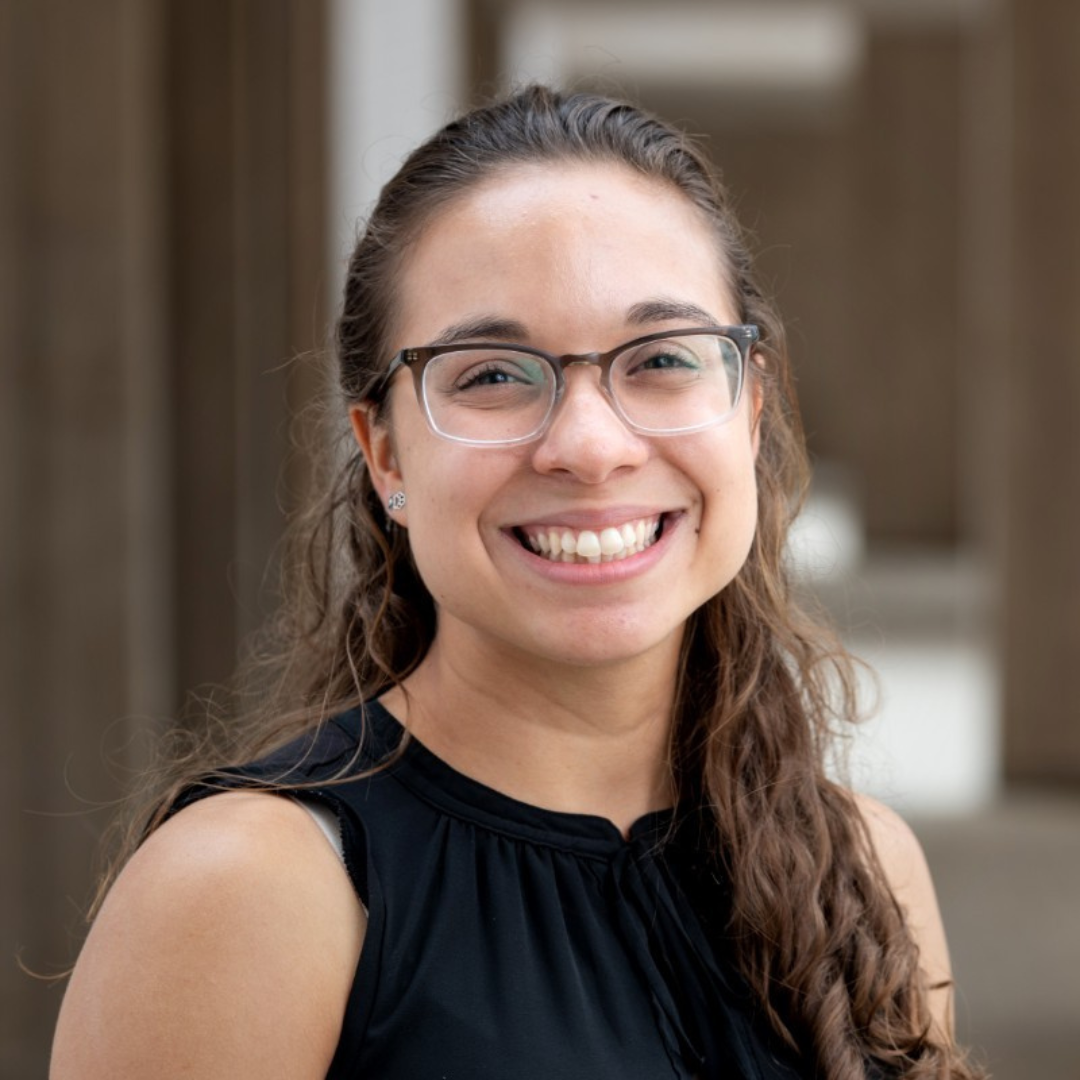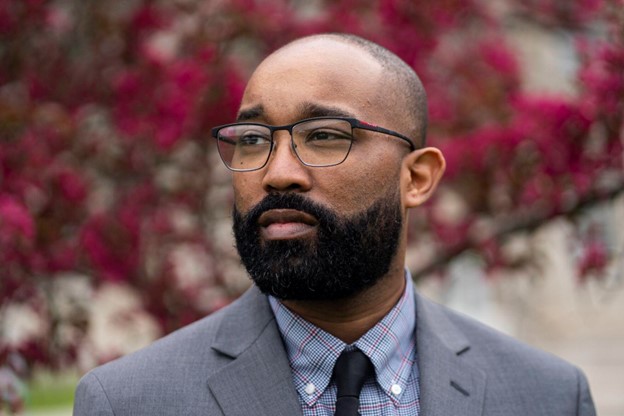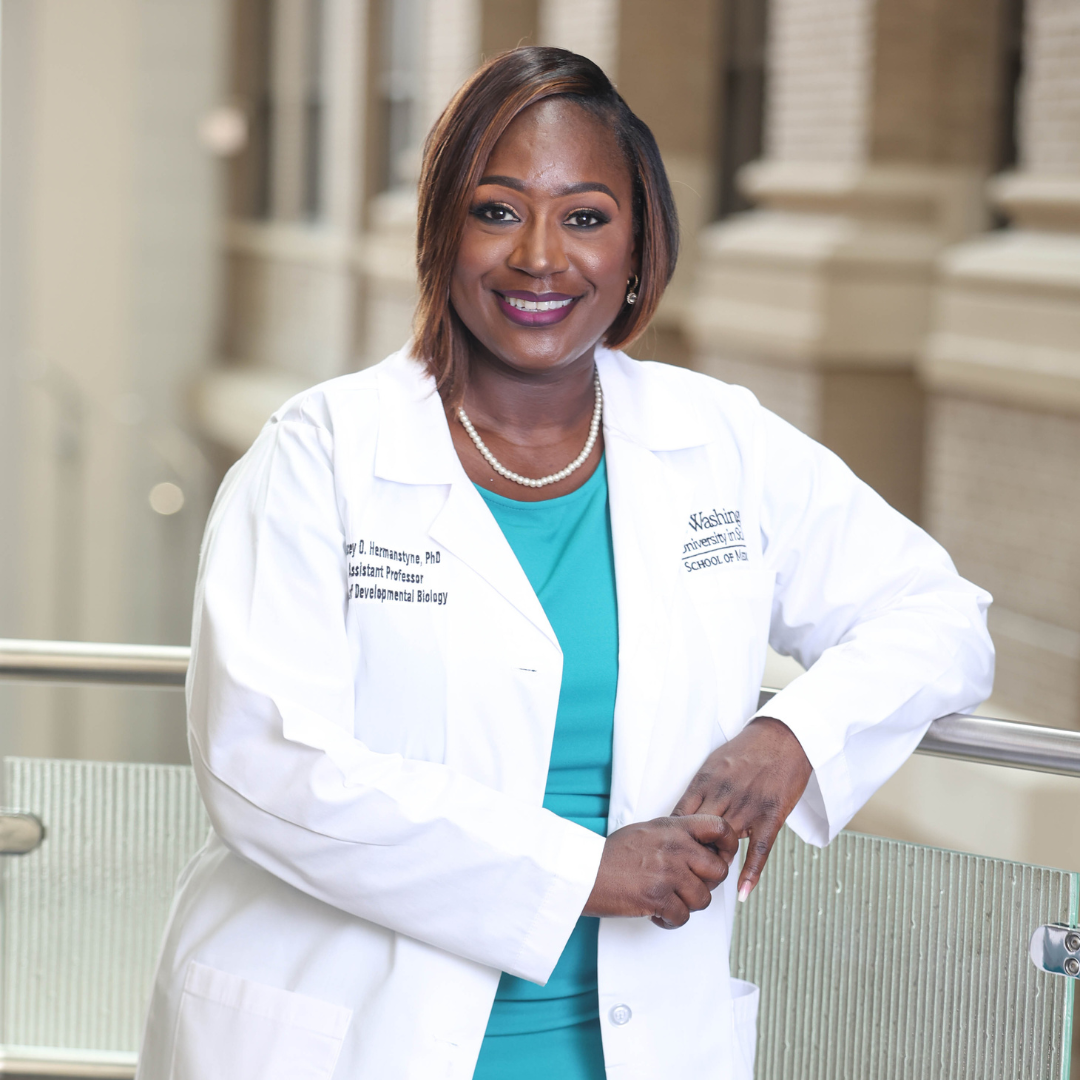



14th Annual NIH Blueprint and BRAIN Initiative® ENDURE Meeting
2024 Speakers

Dr. Michelle Jones-London
Associate Director of the Office of Programs to Enhance the Neuroscience Workforce (OPEN), National Institute of Neurological Disorders and Stroke (NINDS)
Michelle Jones-London serves as the Associate Director of the Office of Programs to Enhance the Neuroscience Workforce (OPEN) in the NINDS Office of the Director. She leads the NINDS’s scientifically driven efforts in three complementary but unique domains. The first is to improve neuroscience research and the Nation’s neurological health through neuroscience research training and career development programs throughout the country and in our intramural research program; the second is to promote a welcoming environment for all members of the internal NINDS workforce to advance the Institute’s mission; and third is to use evidence-based approaches to catalyze cultures of inclusive excellence in the neuroscience research community.
Dr. Jones-London joined NINDS as a Program Director in July 2006. Dr. Jones-London earned her PhD in Neuroscience from Pennsylvania State University College of Medicine. She then received postdoctoral training as a research fellow at University of Pennsylvania. Dr. Jones-London came to the NIH in July 2004 as an Emerging Leader Fellow. She performed duties across the Department of Health and Human Services including the Center for Scientific Review, FDA Office of Women's Health Science Program, and the Immediate Office of the Secretary, Intergovernmental/Tribal Affairs Office. Her trans-NIH efforts have included oversight for the NIH Blueprint & BRAIN Initiative® ENDURE and DSPAN (F99/K00) programs, the BRAIN Initiative® Diversity K99/R00, former Project Scientist for the NIH National Research Mentoring Network (NRMN) and part of the leadership team for NIH Faculty Institutional Recruitment for Sustainable Transformation (FIRST). Her research interests have focused on understanding monoaminergic neurotransmitter regulation and mechanisms of behavioral psychopharmacology in animal models of disorders such as ADHD, Tourette Syndrome, and depression.

Dr. Steve Ramirez
Assistant Professor of Psychological and Brain Sciences, Boston University
Steve Ramirez is an Associate Professor of Psychological and
Brain Sciences at Boston University and a former Junior Fellow of Harvard
University. He received his B.A. in neuroscience from Boston University and
began researching learning and memory in the laboratory of Howard Eichenbaum.
He went on to receive his Ph.D. in neuroscience in the laboratory of Susumu
Tonegawa at MIT, where his work focused on artificially modulating memories in
the rodent brain. Steve's current work focuses on imaging and manipulating
memories to restore health in the brain. Both in and out of the lab, Steve is
also an outspoken advocate for making neuroscience accessible to all. He's
passionate about diversifying and magnifying the voices in our field through
intentional mentorship -- an approach for which he recently received a
Chan-Zuckerberg Science Diversity Leadership Award. Steve has also received an
NIH Transformative Award, the Smithsonian's American Ingenuity award, National
Geographic's Breakthrough Explorer prize, Forbes and Technology Review's Top 35
Innovators Under 35 Award and has given a TED talk. He cheers for all sports
teams Boston!

Dr. Marguerite Matthews
Section Chief, OPEN, NINDS
Marguerite Matthews, PhD is the Section Chief of Career Preparation in the Office of Programs to Enhance the Neuroscience Workforce at the National Institute of Neurological Disorders and Stroke (NINDS) within the National Institutes of Health (NIH). Having had her first research experience in high school through a grant for minoritized students in San Diego,
California, Dr. Matthews is proud to now manage a portfolio that focuses on neuroscience education and training funding opportunities that support individuals at the PreK-12, college, postbaccalaureate, and early-stage graduate school levels. Along with Dr. Michelle Jones-London, Dr. Matthews has helped manage the NIH Blueprint Enhancing Neuroscience Diversity through
Undergraduate Research Education Experiences (ENDURE) program over the last 5 years. Prior to working at NINDS, Dr. Matthews came to NIH as an AAAS Science & Technology Policy Fellow in the Office of Extramural Research, within the Division of Biomedical Research Workforce and the Division of Loan Repayment, where she worked on policy planning and implementation relevant to the biomedical research workforce. She conducted her postdoctoral research fellowship at the Oregon Health & Science University examining childhood development of the human brain using functional and structural neuroimaging. She earned a PhD in neuroscience from the University of Pittsburgh studying the development of the dopamine system during adolescence in rodents. Dr. Matthews is also a proud alumna of Spelman College, a historically Black, women's liberal arts college in Atlanta, Georgia, where she received a BS in biochemistry.

Jillybeth Burgado Carattini
ENDURE alum, D-SPAN F99 Predoctoral Fellow at UCSD/Salk
Jillybeth Burgado Carattini is a PhD candidate in the Neurosciences Graduate Program at UC San Diego. Under the mentorship of Dr. Nicola Allen, Jillybeth currently studies how a class of non-neuronal glial cells called astrocytes contribute to Alzheimer’s Disease pathogenesis, with a focus on cholesterol metabolism. She combines human stem-cell modeling and transgenic mice to investigate how aging- and disease-induced changes to astrocyte’s homeostatic functions promote synaptic and neuronal deficits in these contexts. Jillybeth received her B.S. in Neuroscience and Behavioral Biology from Emory University where she completed research under Dr. Gretchen Neigh. In Dr. Neigh’s lab, Jillybeth primarily investigated metabolic and behavioral consequences of high fructose diets and adolescent stress. As an undergraduate, Jillybeth’s research activities were supported by BP-ENDURE Programs in the Atlanta area. Aspiring to broaden her research experiences after her undergraduate training, Jillybeth joined the Poxvirus and Rabies Branch at the Centers for Disease Control and Prevention (CDC). Here, Jillybeth conducted collaborative diagnostic and epidemiological projects and characterized anti-viral properties of small molecules for the treatment of poxvirus infections. Jillybeth is committed to mentoring and providing opportunities for the next generation of scientists and advocating for underserved communities within and beyond academia.

Jamal B. Williams, PhD
D-SPAN alum, Assistant Professor at University of Buffalo
Jamal B. Williams is an Assistant Professor of Psychiatry and the Director of Psychiatric Genetics at the University at Buffalo. Jamal earned his Bachelor of Science degrees in Mathematics and Biology from D’Youville University, followed by pursuing a Master’s degree in Biology, with a focus on Biophysics from Buffalo State University. Jamal then completed his Ph.D. in Neuroscience at the University at Buffalo, where he became a proud recipient of the prestigious NIH D-SPAN Blueprint Award. After his doctoral studies, Jamal undertook a postdoctoral fellowship at UCLA, where he specialized in human genetics, particularly focusing on African Americans with Autism Spectrum Disorder. Today, Jamal combines his passions for Neuroscience, Genetics, and health equity in his research lab, which emphasizes neurodevelopmental disorders with a focus on multi-ethnic and African ancestry. In addition to his research, Jamal founded the Community Health Speaks initiative at UB’s Jacobs School of Medicine and Biomedical Sciences. This initiative aims to bridge the gap between biomedical science and community health advocacy, striving to achieve health equity.

Tracey Hermanstyne, PhD,
Assistant Professor of Developmental Biology and Assistant Dean Academic Pathway Programs at Washington University in St. Louis
Dr. Tracey Hermanstyne is an Assistant Professor of Developmental Biology and Assistant
Dean of Academic Pathway Programs, in the Office of Diversity, Equity & Inclusion at
Washington University, St Louis School of Medicine. As a trained neuroscientist, she studies
molecular and cellular mechanisms that underlie the functioning of the brain’s clock which
controls circadian rhythms in physiology and behavior. She uses behavioral assays and
molecular genetic strategies with electrophysiology, to continue to produce more insight into
how the brain’s clock functions in normal and pathophysiological conditions. In parallel to her
research efforts, she leads efforts to promote racial equity in STEM education and training at
Washington University. These efforts have focused primarily in three areas: reorganizing and
implementing a research exploration course for entering first-year undergrads from
underrepresented backgrounds, leadership of the NIH-funded Initiative for Maximizing Student Development (IMSD) Program that seeks to increase the retention, recruitment, and graduation
of minority PhD students in the Division of Biology and Biomedical Sciences PhD programs, and leadership of the Howard Hughes Medical Institute (HHMI) Driving Change Initiative team that seeks to re-sculpt undergraduate STEM curriculum to ensure racial equity in science.
Dr. Hermanstyne received her Bachelors of Science in Biology from Howard University in
Washington D.C. She received her PhD in Neuroscience from the University of Maryland,
Baltimore and completed her Postdoctoral training at Washington University, St. Louis School of Medicine. In her free time, Dr. Hermanstyne currently serves as a board member for two non-
profit organizations, The Village 314, Inc. and Rides N’ School Supplies, Inc. Dr. Hermanstyne is
also a proud member of Alpha Kappa Alpha Sorority, Inc., Gamma Omega Chapter.